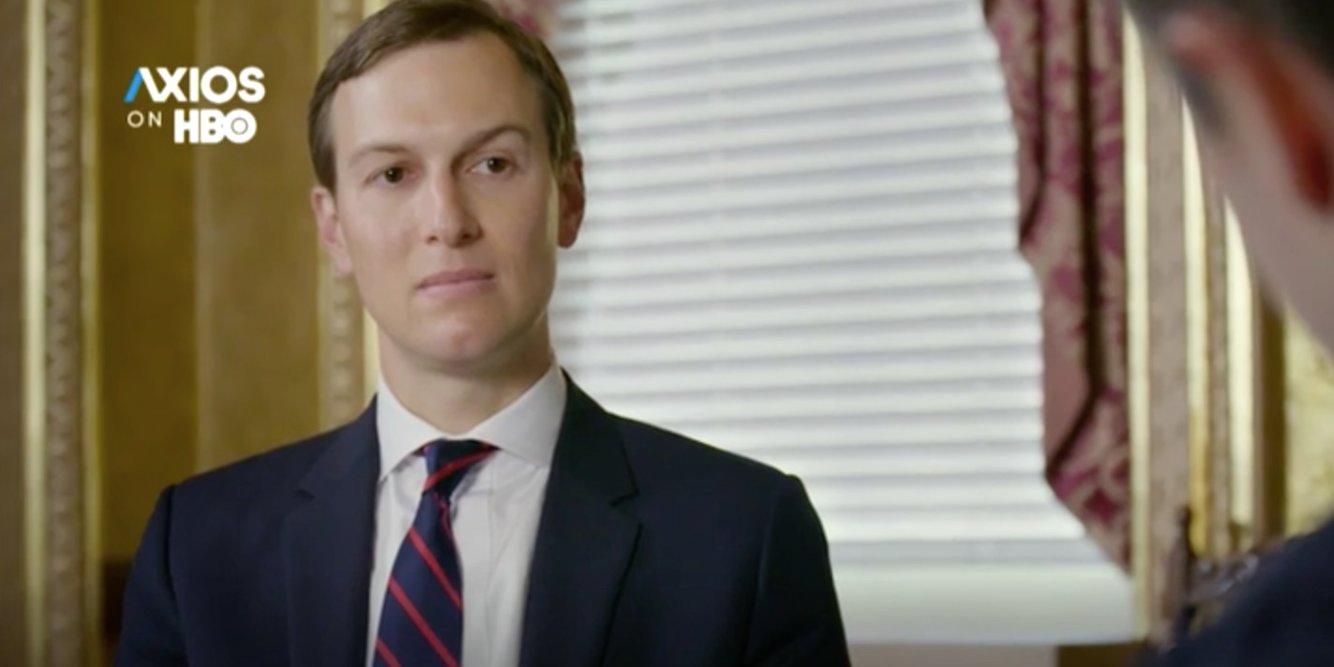Jared, Call the FBI
In a remarkable interview with Axios on HBO, Jared Kushner, a senior adviser in the White House (and, coincidentally, the president's son-in-law), made a number of notable statements. Among them is his ambivalence regarding how he might handle a Russian approach (akin to the infamous Trump Tower meeting) if it were to happen again.

Published by The Lawfare Institute
in Cooperation With

In a remarkable interview with Axios on HBO, Jared Kushner, a senior adviser in the White House (and, coincidentally, the president's son-in-law), made a number of notable statements. Among them is his ambivalence regarding how he might handle a Russian approach (akin to the infamous Trump Tower meeting) if it were to happen again. Asked if he would call the FBI in similar circumstances, Kushner responded: "I don't know. It's hard to do hypotheticals, but the reality is is that we were not given anything that was salacious."
Let's be clear—that's the wrong answer. I will limit this discussion to legal obligations; the moral failings are self-evident. Even if Kushner had no legal obligation to report the Russian contacts in 2016 when he was a private citizen, he no longer is. At the direction of the president, he now holds a top-secret (TS) clearance. And with that clearance comes a legal obligation to notify relevant authorities in the FBI and White House regarding suspicious foreign contacts.
Of course, each particular instance is fact-specific, but as a general rule, those who hold a security clearance are obliged to keep the relevant security office apprised of relevant changes in circumstance or events. (When, for example, I bought property overseas, my security officer told me it was a reportable event.) As one summary puts it: "All cleared personnel must report contacts with individuals of any foreign nationality, either within or outside the scope of their official activities, in which: 'Illegal or unauthorized access is sought to classified or otherwise sensitive information [or] The employee is concerned that he/she may be the target of actual or attempted exploitation by a foreign entity.'"
The language of Security Executive Agent Directive 3, which sets up a uniform reporting system across government for all cleared employees, provides a bit more detail. It requires reporting any contact:
-
With a known or suspected foreign intelligence entity
-
Continuing association with known foreign nationals [including] any contact that involves the exchange of personal information. This requirement applies regardless of where or how the contact was made (personal contact, Internet, etc.)
-
Following initial reporting of the contacts, updates regarding continuing unofficial association [involving] significant changes in the nature of the contact.
-
Suspicious interactions, activity or unexpected events when ... meeting foreign nationals on official business
Such contacts are sufficiently frequent that the intelligence community even has a form for reporting them.
So, this isn't a hypothetical; it's a legal obligation. One might plausibly imagine incidental contact in a social setting that did not require a security office notification. But it seems to me highly implausible, almost to the point of absurdity, to suggest that the same meeting that happened in the Trump Tower would not, if it happened today, be a mandatorily reportable event for Kushner. Either he doesn't know that, in which case he needs a refresher briefing on security procedures, or he does but doesn't care. The right answer to the question ought to have been: "Per my obligations as one who holds a TS clearance with the U.S. government, if approached by a known Russian national in that fashion, I would report it to the security office in the White House."




